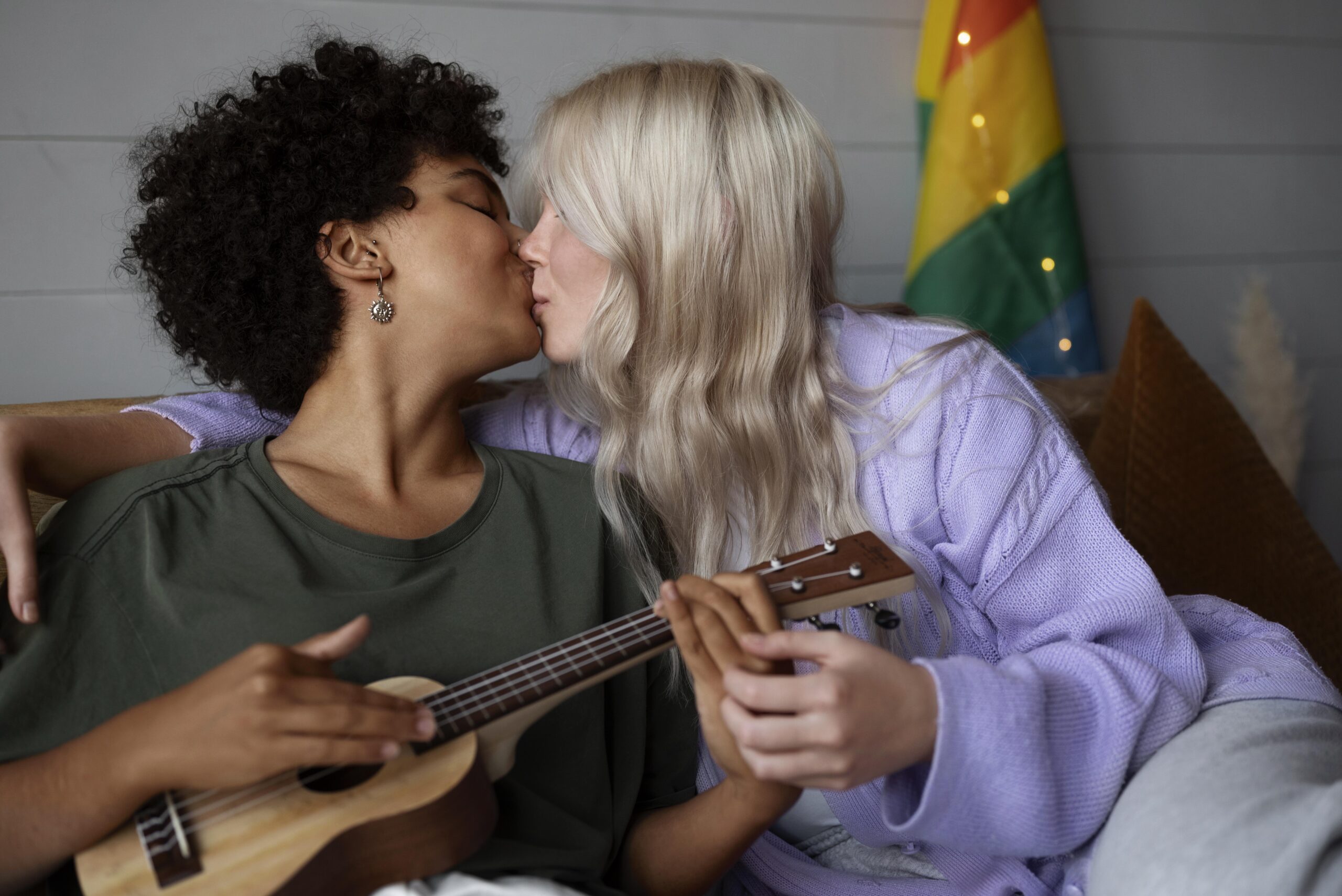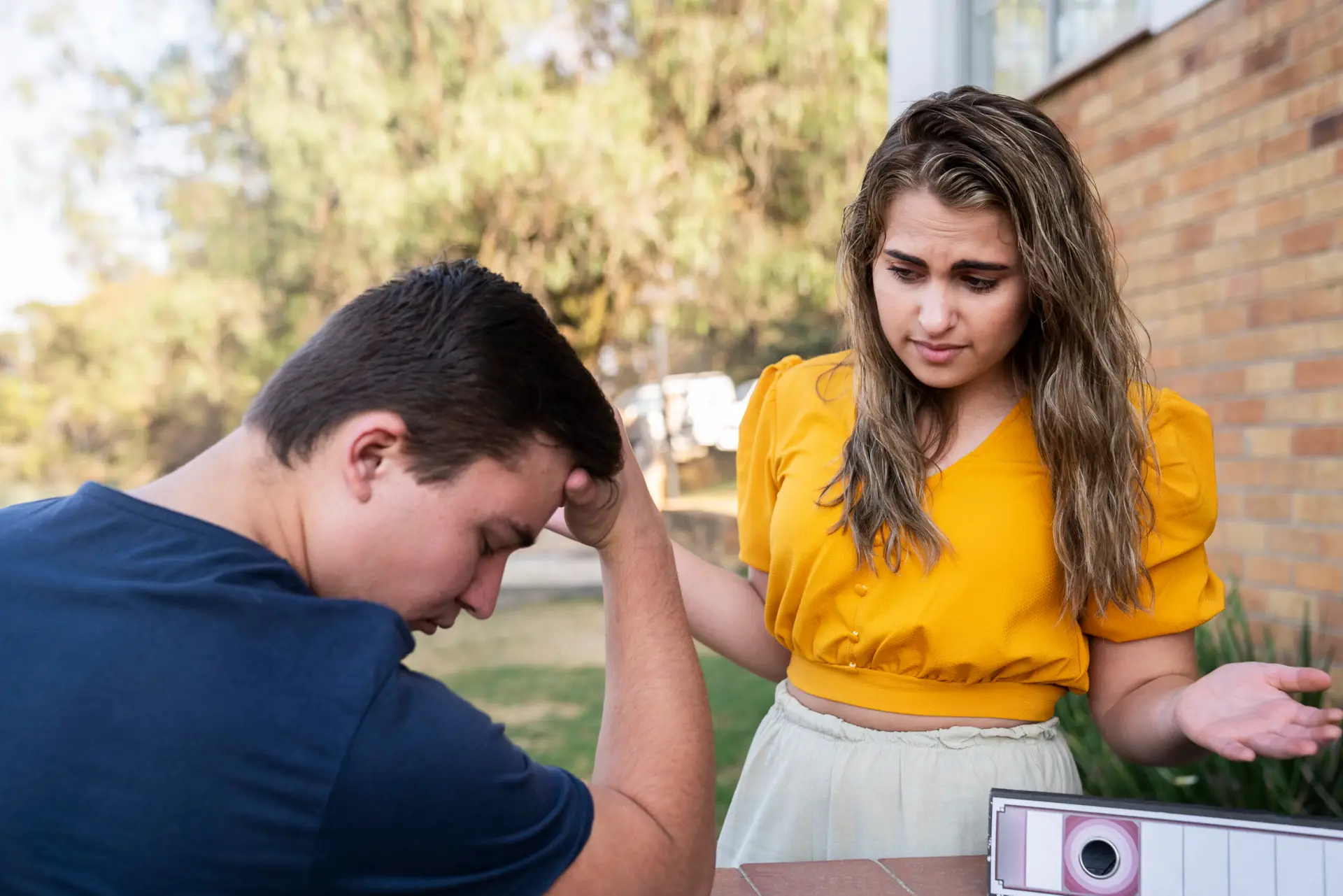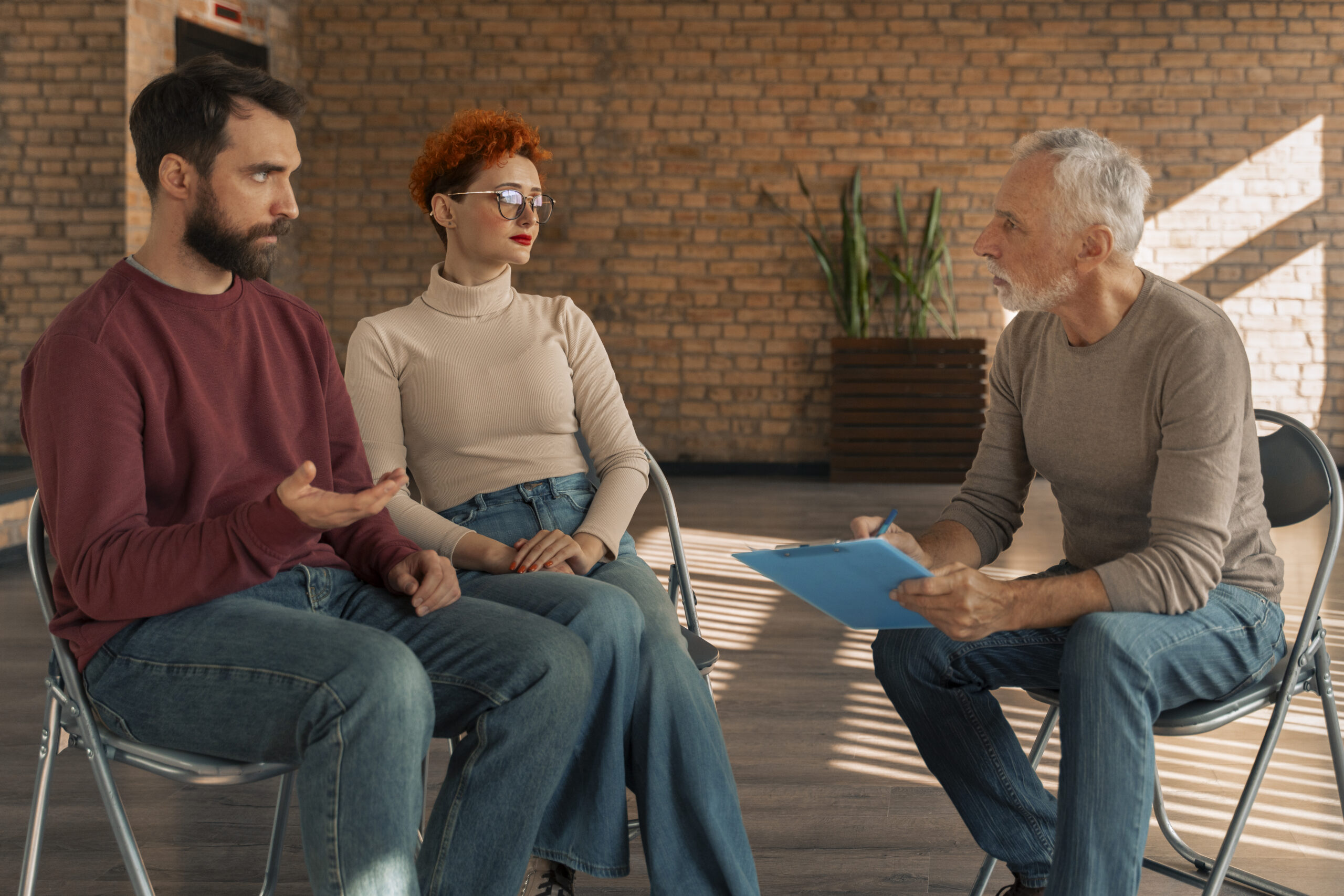Open Relationship Therapist in Los Angeles, California
Many people today are rethinking what relationships can look like. While many still choose monogamy, others are finding happiness in different paths. One of those paths is the open relationship, where partners agree, with full honesty, that it’s okay to have romantic or sexual relationships with others.
According to a YouGov survey, about 1 in 4 Americans say they would consider or are already in a consensually non-monogamous relationship. That number is even higher among younger adults. This shows that open relationships are not just a trend—they’re becoming a real part of how people choose to love.
An open relationship takes trust, clear communication, and strong boundaries. It’s not always easy, and that’s okay. People in open relationships also deal withjealousy and insecurity. That’s why it helps to talk to someone who understands this lifestyle deeply.
As author and speaker Brené Brown once said, “Vulnerability is the birthplace of love, belonging, joy, courage, empathy, and creativity. It is the source of hope, empathy, accountability, and authenticity. If we want greater clarity in our purpose or deeper and more meaningful spiritual lives, vulnerability is the path.”
Being open and honest—especially in a relationship—takes courage. It also takes support. If you’re exploring or already living in this kind of relationship, working with an open relationship therapist can make a big difference. They can help you and your partner(s) talk more openly, understand each other better, and work through any challenges together.
Understanding Open Relationships: A Simple Guide

An open relationship is a consensual, non-monogamous relationship. This means that all people involved agree to have romantic or sexual connections outside the relationship. It’s different from cheating because there is honesty and permission.
It is also different from polyamorous relationships in which there are 3+ partners in a long-term relationship. Polyamory can also be open or closed (no other romantic or sexual partners allowed).
Open relationships can take many forms and partners may negotiate different boundaries, for example:
- Partners are permitted to have sexual experiences with others, but only as a couple (playing together)
- Partners are allowed to have sexual experiences separately, but no emotional connection or “repeats.”
- Partners may agree on 100% transparency policy, “don’t ask don’t tell” policy, or “tell only if asked” policy.
- Partners may agree to reserve certain sexual acts only for their partner and never to engage in them with anyone else.
Boundaries may vary, but the important part is that everyone involved agrees on what’s okay and what’s not. Having these conversations can be difficult without guidance. That’s where Dr. Harel can help.
Pro Tip: Talk openly with your partner about rules and feelings—clear communication is key to a healthy, open relationship.
What Brings People in Open Relationships to Therapy

Just like any other type of relationship, open relationships have ups and downs. Some common concerns people bring to therapy include:
- Jealousy: Even when you agree to sexually engage with other people, jealousy can, and most likely will still show up. A therapist can help you understand where it’s coming from and how to manage it.
- Lack of Communication: Talking about feelings and boundaries is key in open relationships. Without clear communication, confusion and hurt feelings can happen.
- Insecurity: You may start comparing yourself to other partners or worry about being replaced. Therapy helps you build safety and depth in the relationship with your partner. .
- Boundary Problems: Maybe you agreed on certain rules, but someone broke them. Or maybe you’re unsure what rules you need. A therapist can help clarify and reset those boundaries.
- Social Pressure or Stigma: Some people worry about what friends, family, or society will think. Talking to a therapist can help you cope with outside judgment and be intentional about disclosure or non-disclosure.
How an Open Relationship Therapist Can Help You Grow and Connect
Therapy isn’t just for when things go wrong—it can also help your relationship grow stronger. In an open relationship, you may face unique challenges, but you also have the chance to build deeper trust, better communication, and a more fulfilling connection.
An open relationship therapist can give you a safe space to explore your feelings and strengthen your bond with your partner. Here are some ways therapy can help you:
- Build emotional honesty and trust
- Improve how you talk about sex and intimacy
- Deal with triggers in a healthy way
- Talk about tough topics without fighting
- Understand your own needs and emotions better
All relationships take work, and open ones may come with extra layers, like jealousy, fear of rejection, or insecurity. These feelings are normal. What matters is how you handle them. A skilled therapist can help you:
- Share your feelings openly and clearly
- Set healthy boundaries and stick to them
- Learn how to listen and communicate better
- Handle jealousy without blame or shame
- Understand each other’s needs and growth
Sometimes people feel confused or even ashamed about wanting an open relationship. A good open relationship therapist won’t judge. They’ll meet you where you are—with care, understanding, and support. Therapy can help you feel more confident in yourself and more connected to your partner(s), no matter what your relationship looks like.
Open Relationship Therapy in Los Angeles: What to Look For
 Los Angeles is a diverse and open-minded city, making it a great place to find help for non-traditional relationships. Whether you’re exploring ethical non-monogamy or facing challenges in a long-term open relationship, working with an open relationship therapist can offer the guidance and clarity you need.
Los Angeles is a diverse and open-minded city, making it a great place to find help for non-traditional relationships. Whether you’re exploring ethical non-monogamy or facing challenges in a long-term open relationship, working with an open relationship therapist can offer the guidance and clarity you need.
In a big city like L.A., the real challenge isn’t finding a therapist—it’s finding the right one. Look for someone who has experience with non-monogamous dynamics, offers a non-judgmental space, and helps you set clear, healthy goals. You should feel safe and supported in every session. And remember, if it doesn’t feel like a good fit, it’s okay to try someone else.
Choosing an open relationship therapist who truly understands your relationship style can help you build deeper trust, improve communication, and feel more confident in your choices. It’s a powerful step toward emotional growth and stronger, more connected relationships.
Pro Tip: No two relationships are the same. A good therapist will understand your situation and help in a way that fits you.
Dr. Harel Papikian: Supportive Therapy for Modern Relationships
Dr. Harel is a licensed clinical psychologist based in Los Angeles, California. He works with individuals and couples who want to grow, heal, and understand themselves better. With over 15 years of experience, Dr. Harel has helped many clients navigate complex relationship challenges, including non-traditional partnerships like open relationships.
What makes Dr. Harel stands out for his warm, thoughtful, and non-judgmental approach. He understands that every relationship is different and believes that love and connection can look many different ways. Couples counseling rates usually range from $200 to $300 per session, depending on your unique needs. Many couples find that even a few sessions can lead to meaningful, and lasting change.
He uses proven techniques like cognitive therapy, hypnotherapy, and neurolinguistic programming to help clients thrive His goal is to create a safe space where people can speak honestly and feel validated.
For those exploring or living in open relationships, Dr. Harel offers personalized guidance. He helps clients set clear boundaries, communicate more effectively, and work through emotions like jealousy or fear. Whether you’re looking to deepen your connection or find healing after a tough experience, his therapy can help you feel more confident and connected.
Dr. Harel offers therapy through secure online sessions, making it easy and flexible for couples to access help from anywhere. He also serves people from diverse backgrounds, including LGBTQ+ clients and people of all identities.
Open Relationships: Important Facts You Should Know

Open relationships work best when there’s trust, honesty, and good communication. Here are some simple facts and tips to help you understand them better:
- A 2025 study looked at 35 other studies with 25,000 people. It showed that open and polyamorous relationships can be just as happy and committed as monogamous ones.
- Talking often and honestly about your feelings, boundaries, and needs helps everyone stay on the same page.
- Feeling jealous is normal. If you talk about it kindly and with curiosity, it can help you grow closer.
- Clear rules and boundaries help everyone feel safe. These can change over time, so it’s good to check in often.
- An experienced open relationship therapist can give you a safe place to share, grow, and build stronger relationships.
Therapy for Your Open Relationship Journey
Open relationships can bring emotional growth, deeper connection, and personal freedom—but they also call for honest communication, trust, and self-awareness. It’s completely natural to seek guidance along the way. Therapy offers a safe, supportive space to explore your feelings, strengthen your bond, and navigate challenges with clarity.
Whether you’re just starting to explore non-monogamy or looking to deepen your existing open relationship, having the right help can make a meaningful difference. If you’re in Los Angeles, Dr. Harel is an experienced clinical psychologist who understands the emotional and practical aspects of this relationship style.
Take the next step toward a healthier, more honest relationship. An experienced open relationship therapist like Dr. Harel can guide you effectively. Schedule a session today and build the love life that makes you happy.
Frequently Asked Questions
1. What is an open relationship, and how does it work?
An open relationship is when both partners agree they can have romantic or sexual connections with others. Everyone involved knows and respects the rules. It’s based on trust, honesty, and open communication. People choose this style for freedom, personal growth, or a deeper connection.
-
Can therapy help with jealousy in an open relationship?
Yes, therapy can help you understand and healthily manage jealousy. A skilled therapist can guide you to explore where those feelings come from and how to respond without blame. Jealousy is normal, and learning to talk about it can bring you closer.
-
What should I look for in an open relationship therapist?
Look for someone experienced with non-monogamous relationships, who listens without judgment and helps you feel safe. The right therapist supports your goals, respects your identity, and guides you through challenges. Dr. Harel offers help through secure virtual sessions, providing easy access to therapy from the comfort of your own space.
4. Is therapy helpful even if my relationship isn’t in crisis?
Absolutely. Therapy isn’t just for fixing problems—it helps you grow, set healthy boundaries, and build stronger connections. Dr. Harel works with many individuals and couples who want to improve communication, build confidence, and create more fulfilling open relationship experiences, no matter their starting point.
-
Are open relationships successful long-term?
Yes, many people in open relationships report high levels of happiness, trust, and commitment. Studies show that success depends more on communication and emotional skills than on relationship type. With clear boundaries and mutual respect, open relationships can be just as fulfilling as monogamous ones.

Leave a Reply